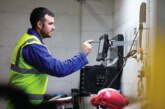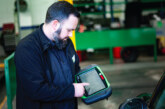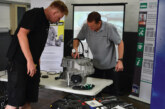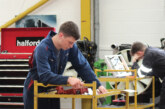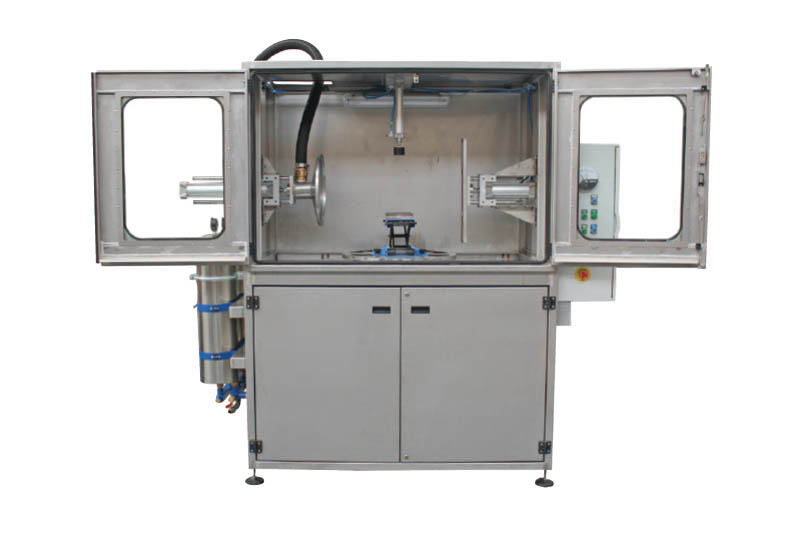
If you’re running a fleet of LCVs, cost reduction, sustainability, and corporate social responsibility should be high on your agenda. Ivor Searle explains how fleets can start taking greener steps.
Standard issues have certainly been exacerbated by the pandemic, so it’s no wonder that companies large and small are closely examining ways of further improving the efficiency and green credentials of their van fleets.
Among the major businesses that Ivor Searle is helping to effect positive change is one of the world’s largest fleet management companies. Aligning with Ivor Searle’s philosophy on the benefits of a circular economy, which promotes the sustainability and cost benefits of remanufacturing, rather than replacement of OE major units such as engines and gearboxes, this fleet provider operates a proactive ‘predict and prevent’ approach.
Turning the traditional ‘break and fix’ model of fleet maintenance on its head, its preventive maintenance programme enables fleet customers to control costs, avoid unnecessary repairs, and minimise downtime. The use of data helps to identify trends in specific component failures, so that the company can work with customers to navigate potential failures across similar vehicles.
Although the concept of preventive maintenance is often perceived by fleet managers as optional, Ivor Searle has helped to prove that, by investing in this approach as a commercial necessity, businesses can not only cut their costs but also go a long way to reducing their carbon footprint.
Whilst more obvious services such as oil changes or tyre rotation will extend the life of a vehicle, for diesel-powered vans that make up the bulk of the UK’s light commercial parc, maintenance of the diesel particulate filter (DPF) is a prime contributor to extending vehicle life expectancy in the fleet cycle. In a post-COVID economy, the longer a van can remain in service, the less funding is required for replacement vehicles, which is good for a company’s budget.
Although the sale of new fossil-fuelled vehicles will be banned from 2030 in the UK, the fact remains that the latest diesel vans are the cleanest in history. Harmful NOx (nitrogen oxide) emissions have fallen 81% in the UK since 1990, which is the biggest reduction of any industrial sector.
In addition to being the UK’s leading remanufacturer of major units for light commercial vehicles, Ivor Searle also provides a professional trade-only DPF cleaning service. Over the past 18 months, just one of its major fleet customers has saved its own customers almost £77,000 by utilising Ivor Searle’s DPF cleaning service, based on an average DPF replacement price of £772 per vehicle, the majority of which are fitted to light commercial vans.
DPFs work by trapping soot particles from incomplete combustion in the exhaust system. The DPF is structured like a series of honeycomb filters that prevent the soot passing all the way through the filter into the atmosphere. Although DPFs are designed to effectively selfclean in a process called ‘regeneration’ where the soot is burnt off the filter at a high temperature of around 650°C, this is only effective when travelling consistently at moderate to high engine speed. However, if a vehicle is frequently used to travel short distances and then switch off, such as delivery vans, then it is unlikely to produce the exhaust temperature required to enable regeneration, resulting in excessive soot build up and a continual reduction in vehicle performance.
Commenting on its ability to save companies significant sums by cleaning DPFs rather than simply sourcing a new one, David Eszenyi, Commercial Director of Ivor Searle, explains: “Now more than ever, taking a preventive approach to vehicle maintenance is not only the most sustainably conscious way forward, it is also financially proven to reduce costs.
“With the fleet industry needing to retain vehicles in service for longer due to the global semi-conductor crisis affecting the supply of new vans, there is a major onus on fleet operators and maintenance companies to ensure that vehicle performance is protected as much as possible. By cleaning DPFs regularly, less energy is required to produce new ones, so this contributes positively to a circular economy.”
How to tell if your van’s DPF may need attention:
- The DPF warning light is on
- The vehicle is in ‘limp’ mode
- A strong smell of diesel
- The vehicle is emitting excessive exhaust smoke
- The engine oil level is increasing
- High fuel consumption



